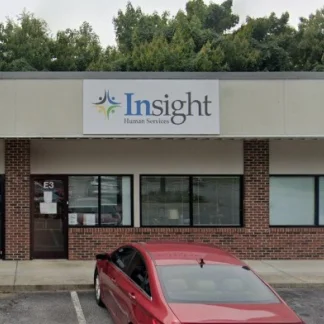Family Preservation Services
Family Preservation Services is a private rehab located in Asheville, North Caro...
Insight Human Services is a drug and alcohol addiction treatment provider for adults and adolescents in Asheville, North Carolina. They offer initial assessments, residential addiction treatment, intensive outpatient rehab, medication-assisted treatment (MAT), and women’s recovery services.
Mental Health Assessment and Counseling Mental health assessments evaluate the client’s mental health and substance use behavior. The information helps to create an individualized treatment plan, which may include individual, group, and/or family counseling.
Medication-Assisted Treatment for Addiction The medication-assisted treatment (MAT) rehab program includes detox, counseling, support groups, and medication management in an outpatient setting. The MAT program is appropriate for alcohol and opioid use disorders. As clients progress and stabilize, in-person office appointments tend to become less frequent.
Residential Substance Use Disorder Treatment Inpatient addiction treatment programs rely on evidence-based practices to treat addiction and mental health conditions. They offer programs for women over 18. Treatment begins with an assessment to determine individual needs and treatment plan, and may include medication management, individual and groups counseling, postpartum treatment, recovery education, and support meetings.
Intensive Outpatient Program (IOP) Designed for women, the outpatient program at Insight Human Services supports women in individual and group treatment sessions 3-4 days a week. Participants improve coping skills, develop a peer support network, and learn relapse prevention strategies.
Contact us for more information: (828) 210-0540

Connect with Insight Human Services - North Louisiana Avenue by calling their admissions team directly.
(828) 210-0540 Website Get DirectionsResearch clearly demonstrates that recovery is far more successful and sustainable when loved ones like family members participate in rehab and substance abuse treatment. Genetic factors may be at play when it comes to drug and alcohol addiction, as well as mental health issues. Family dynamics often play a critical role in addiction triggers, and if properly educated, family members can be a strong source of support when it comes to rehabilitation.
Group therapy is any therapeutic work that happens in a group (not one-on-one). There are a number of different group therapy modalities, including support groups, experiential therapy, psycho-education, and more. Group therapy involves treatment as well as processing interaction between group members.
In individual therapy, a patient meets one-on-one with a trained psychologist or counselor. Therapy is a pivotal part of effective substance abuse treatment, as it often covers root causes of addiction, including challenges faced by the patient in their social, family, and work/school life.
Group therapy is any therapeutic work that happens in a group (not one-on-one). There are a number of different group therapy modalities, including support groups, experiential therapy, psycho-education, and more. Group therapy involves treatment as well as processing interaction between group members.
In individual therapy, a patient meets one-on-one with a trained psychologist or counselor. Therapy is a pivotal part of effective substance abuse treatment, as it often covers root causes of addiction, including challenges faced by the patient in their social, family, and work/school life.
In individual therapy, a patient meets one-on-one with a trained psychologist or counselor. Therapy is a pivotal part of effective substance abuse treatment, as it often covers root causes of addiction, including challenges faced by the patient in their social, family, and work/school life.
Family Preservation Services is a private rehab located in Asheville, North Caro...
Criminal Justice – Women at Risk Program is a private rehab located in Asheville...
October Road provides evidence-based treatment methods, comprehensive service pl...
Insight Human Services - Women's Recovery Center is a nonprofit rehab located in...